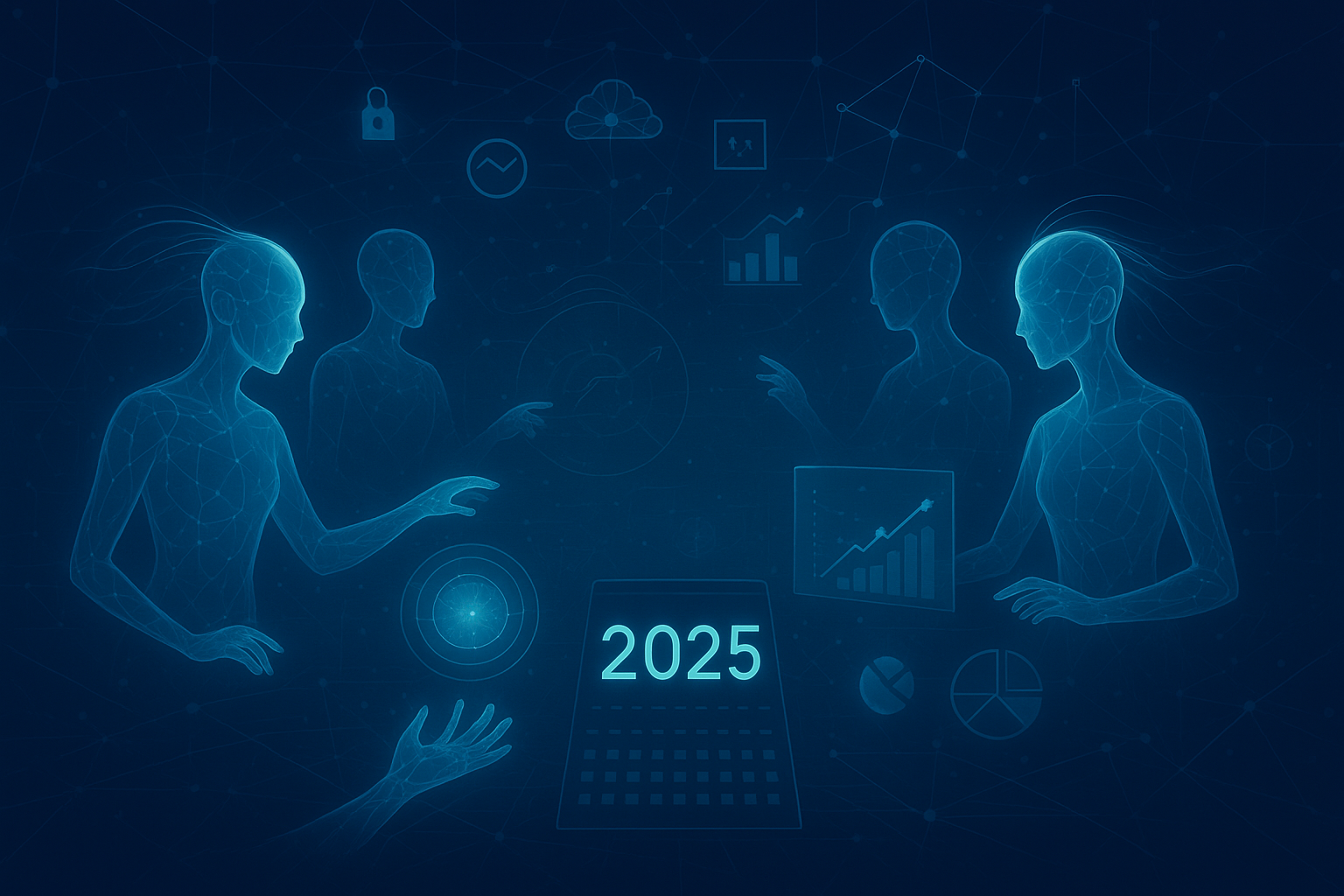The world is divided into politics, culture, and information streams, disagreements often escalate faster than solutions can emerge. From online debates to workplace conflicts, finding common ground has become a daily challenge. Complex Chaos, a forward-looking AI initiative, believes technology can help bridge these divides. Unlike conventional AI applications that focus on automation, efficiency, or predictive analytics, Complex Chaos is exploring AI’s potential to enhance human understanding, guide productive dialogue, and foster consensus across communities, organizations, and digital spaces.
The significance of this vision is profound. If AI can reliably assist humans in navigating disagreements, it could reshape how societies approach collaboration, conflict resolution, and policymaking. The stakes are high: bridging divides could mean more harmonious workplaces, healthier online communities, and more responsive governance.
The Vision: AI as a Mediator of Human Differences
Understanding Complex Chaos’s Mission
Complex Chaos aims to empower humans to find shared understanding through AI. The company is developing algorithms that identify common points in diverse opinions, flag potential misunderstandings, and suggest neutral, constructive language for conversations. Rather than replacing human judgment, this AI acts as a facilitator, helping people focus on areas of agreement while acknowledging differences respectfully.
At its core, the vision is about creating “common ground intelligence”—the ability to recognize where people overlap, even in heated discussions. This approach is particularly relevant in today’s fragmented digital and corporate landscapes, where polarization often prevents meaningful communication.
How AI Bridges Divides: A Closer Look
-
Data-Driven Dialogue Analysis
Modern AI can sift through vast amounts of conversation data, identifying patterns, recurring disagreements, and areas of alignment. By analyzing the tone, context, and content of discussions, AI can highlight where consensus exists. For example, a workplace tool could analyze team discussions around project priorities and highlight shared goals, helping teams make faster, mutually agreeable decisions. -
Bias Detection and Perspective Expansion
Humans naturally carry biases that shape their interpretation of information. AI models, when designed thoughtfully, can detect cognitive biases, such as confirmation bias, and suggest alternative ways to frame arguments. This allows participants to step outside their own viewpoints and consider perspectives they might otherwise ignore. -
Scaling Conflict Resolution
One of AI’s most significant advantages is scalability. While a human mediator can only handle a limited number of participants, AI systems can monitor hundreds or thousands of interactions simultaneously, providing real-time feedback and guiding discussions toward compromise. This has applications from corporate teams to online communities and civic engagement platforms.
Real-World Applications of AI-Facilitated Consensus
-
Corporate Collaboration: Companies often struggle with internal misalignment on strategy, resource allocation, or deadlines. AI can provide insights into where teams are aligned and suggest structured ways to resolve conflicts efficiently, improving productivity and morale.
-
Online Communities: Platforms that host debates or user discussions frequently face polarization and toxicity. AI-driven moderation tools can highlight shared values, recommend neutral phrasing, and de-escalate conflicts, creating healthier digital spaces.
-
Civic and Policy Engagement: Governments and NGOs can use AI to analyze public feedback on policy proposals, identifying consensus areas and key concerns. This allows policymakers to make decisions that reflect collective priorities, rather than only vocal minority opinions.
Pros and Cons of Using AI for Consensus-Building
Pros
-
Enhanced Communication: AI can uncover shared values and goals, allowing individuals and groups to focus on productive dialogue rather than conflict escalation.
-
Efficiency: By highlighting common ground, AI reduces the time spent in unproductive arguments or meetings.
-
Scalability: AI systems can manage and mediate discussions across large populations, something that human moderators alone cannot achieve.
Cons
-
Over-Reliance on AI: There is a risk that humans might defer too much to AI, neglecting their own judgment and critical thinking.
-
Privacy Concerns: AI requires access to conversation data to function effectively, raising concerns about consent and confidentiality.
-
Algorithmic Bias: AI is only as unbiased as the data it learns from. Without careful design, it may perpetuate existing biases or misinterpret cultural nuances.
Global Trends and Case Studies
-
Corporate Implementation: Companies like Salesforce and Microsoft have experimented with AI tools to improve team alignment and decision-making, particularly in remote or distributed environments. These experiments suggest that AI can meaningfully reduce misunderstandings and improve collaborative outcomes.
-
Social Media Platforms: Social networks increasingly use AI to detect divisive content, guide community moderation, and promote constructive dialogue. Tools that surface consensus or highlight shared values can counteract echo chambers and polarization.
-
Policy and Civic Use: Some governments have begun leveraging AI to aggregate public opinion, providing policymakers with a clearer understanding of societal priorities. For example, AI has been used to analyze citizen feedback on urban planning and public health initiatives, ensuring policies reflect broader consensus.
FAQs
Q1: Can AI truly help humans reach consensus?
Yes. By highlighting points of agreement, identifying potential biases, and guiding structured dialogue, AI can assist humans in finding common ground more efficiently.
Q2: Does AI replace human judgment?
No. Complex Chaos emphasizes AI as a facilitator rather than a replacement, enhancing human decision-making and collaborative problem-solving.
Q3: Which sectors benefit most from AI-mediated consensus?
Corporate teams, online communities, civic organizations, policy-making bodies, and educational institutions are among the primary beneficiaries.
Q4: What challenges remain?
Bias in AI models, privacy concerns, and over-reliance on AI are significant hurdles that must be addressed to maintain trust and effectiveness.
Subscribe for insights on AI-driven collaboration and human-centered technology.
Note: All logos, trademarks, and brand names referenced herein remain the property of their respective owners. The content is provided for editorial and informational purposes only. Any AI-generated images are illustrative and do not represent official brand assets.



